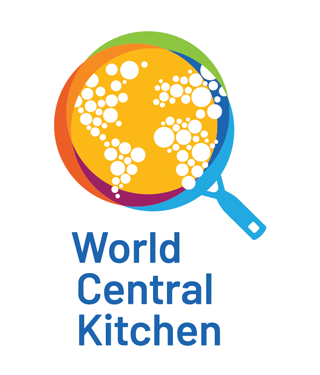The World Central Kitchen (WCK) a nonprofit organization established by the renowned Washington, D.C. chef and humanitarian José Andrés, resumed operations in Gaza, after a three-week absence and since their return, they have provided nearly seven million meals, exceeding their daily goal of 250,000 meals. Notably, since the conflict began on October 7, 2023, with Hamas killing over 1,200 people, taking more than 200 hostages, and injuring many others, WCK was among the first organizations to arrive in Gaza. Since then, they have distributed over 50 million meals to individuals affected by the conflict on both sides.
What prompted the WCK to leave Gaza
The World Central Kitchen (WCK) withdrew from Gaza after an April 1 airstrike by the Israel Defense Forces (IDF), resulting in the deaths of seven WCK staff members who were part of an aid convoy. Israel has stated that the incident was unintentional, caused by the erroneous belief that Hamas operatives were present in the convoy. Chef Andrés has voiced significant condemnation of the Israeli government and did have considerable second thoughts about returning to the area.
What convinced the WCK to return to Gaza?
President Joe Biden, a personal friend of Andrés and who appointed him to the President’s Council on Sports, Fitness, & Nutrition, implored Andrés to reconsider returning to Gaza. The WCK founder also engaged in several in-depth discussions with officials from the Israeli Defense Ministry’s COGAT agency regarding safety before agreeing to redeploy his team to Gaza.
Since their return on April 29th, bolstered by COGAT’s support, the WCK has emerged as the most effective provider of food and essential supplies to civilians impacted by the conflict. With over 70 kitchens across Gaza, WCK aims to extend their reach into the northern areas, currently experiencing intense conflict.
“Jose our founder says the decision to restart feeding in Gaza was both the hardest and the simplest one we can make our mission is simple to be the first to the frontlines providing meals in response to humanitarian climate and community crisis,” a spokesperson with WCK said.
Now the WCK has created a template for other aid agencies to follow
In a recent press briefing, Manager John Torpey reported that the organization had delivered approximately 100 trucks of aid to Gaza last week. He detailed that WCK utilizes various routes to transport aid from the Kerem Shalom crossing at Gaza’s southern tip to the regions of Khan Younis and Deir Balah in the south and center of Gaza. Torpey emphasized that WCK maintains “constant communication” with COGAT to facilitate the distribution of humanitarian aid within Gaza, highlighting the importance of this coordination in ensuring that the Palestinian population has access to the provisions supplied through the crossings.
What is going on with the United Nations?
Israel alleges that UNRWA was complicit in the October 7th Hamas attack and is failing to deliver aid as trucks remain idle at the border. Additionally, there are numerous accusations that the UN agency continues to support Hamas, to the detriment of Gazans in need of the provided aid.
The allegations also encompass charges against local personnel in Gaza. In contrast to United Nations reports of widespread starvation in Gaza, an official from the Israel Defense Forces (IDF) responsible for coordinating the delivery of humanitarian aid into Gaza has asserted that there is no shortage of food in the territory.
An important study shows food is getting to those who need the food in Gaza.
The Robert H. Smith Faculty of Agriculture, Food and Environment at the University of Jerusalem convened an expert panel to examine the food supplied to Gaza during the conflict. The report which you can read by clicking here detailed that the provisions from January to April adequately meet the daily energy and protein requirements of the population.
The data, sourced from the Coordinator of Government Activities in the Territories (COGAT) of the Defense Ministry, detailed the weight of specific food commodities and standardized food parcels delivered to Gaza. The authors determined that the average energy availability over four months was 3,163 kcal per person per day, which notably surpasses the Sphere humanitarian organization’s standard of 2,100 kcals per person per day, the minimum food aid requirement in crisis situations.
This in-depth analysis highlights the fact that the amount of food delivered per capita should be sufficient for the entire Gazan population and meets Sphere humanitarian recommendations for food aid delivery to conflict-affected populations, during the period examined,” the new study found.
Challenges in Aid Distribution
Col. Moshe Tetro, the IDF liaison, has ascribed the current issues to the UN’s failure to adequately distribute supplies in Gaza. Although Israel contests the allegations of food scarcity, the reality is intricate, and the contributions of autonomous entities like WCK are crucial in meeting Gaza’s humanitarian demands.
Jim Williams covers the conflict between Israel and Hamas, offering comprehensive written articles and video coverage on various Middle Eastern issues.
Washington based CEO & Founder of LJC. Media covering politics, sports, & entertainment A seven-time Emmy Award-winning TV producer, director, and podcast host. Digital Director and Washington Bureau Chief at News Talk Florida & The Daily Cable
















































